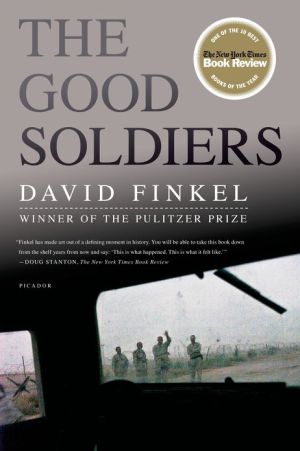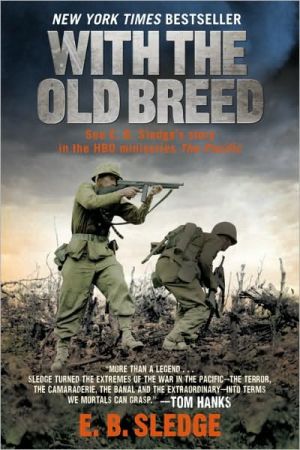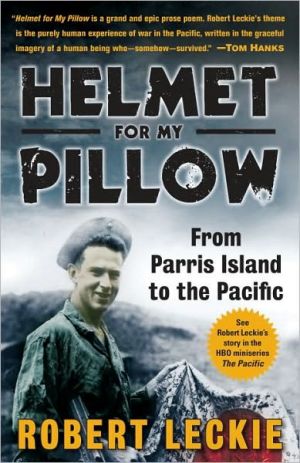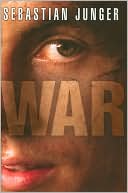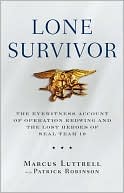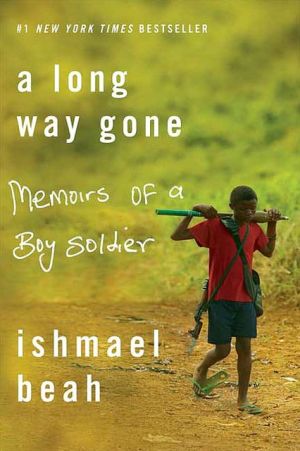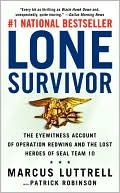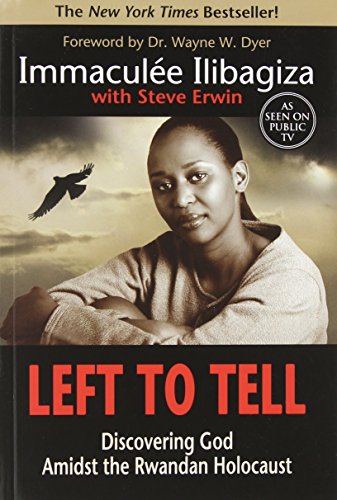The Good Soldiers
A BEST BOOK OF THE YEAR FOR:\ THE NEW YORK TIMES CHICAGO TRIBUNE\ SLATE.COM\ THE BOSTON GLOBE THE KANSAS CITY STAR THE PLAIN DEALER (CLEVELAND)\ THE CHRISTIAN SCIENCE MONITORWINNER OF THE HELEN BERNSTEIN BOOK AWARD FOR EXCELLENCE IN JOURNALISM\ It was the last-chance moment of the war. In January 2007, President George W. Bush announced a new strategy for Iraq. It became known as "the surge." Among those called to carry it out were the young, optimistic army infantry soldiers of the...
Search in google:
A BEST BOOK OF THE YEAR FOR: THE NEW YORK TIMES CHICAGO TRIBUNESLATE.COMTHE BOSTON GLOBE THE KANSAS CITY STAR THE PLAIN DEALER (CLEVELAND)THE CHRISTIAN SCIENCE MONITORWINNER OF THE HELEN BERNSTEIN BOOK AWARD FOR EXCELLENCE IN JOURNALISMIt was the last-chance moment of the war. In January 2007, President George W. Bush announced a new strategy for Iraq. It became known as "the surge." Among those called to carry it out were the young, optimistic army infantry soldiers of the 2-16, the battalion nicknamed the Rangers. About to head to a vicious area of Baghdad, they decided the difference would be them.Fifteen months later, the soldiers returned home — forever changed. The chronicle of their tour is gripping, devastating, and deeply illuminating for anyone with an interest in human conflict. With The Good Soldiers, Pulitzer Prize-winning reporter David Finkel has produced an eternal story — not just of the Iraq War, but of all wars, for all time. The Barnes & Noble Review Several meticulously researched and insightful books have explored why the United States went to war in Iraq. Works like Thomas E. Ricks's Fiasco and Barton Gellman's Angler have thoroughly examined the hubris, confused thinking, and ever-changing rationales for the 2003 Iraq invasion and subsequent occupation, but no one volume has fully captured the day-to-day grind and lethal reality faced by American troops on the ground in Iraq. Until now.Pulitzer Prize winner David Finkel, a Washington Post staff writer, spent over a year with an American infantry battalion, known as the 2-16 (whose average age is 19), as they deployed from Fort Riley in Kansas to one of the most dangerous, war-ravaged areas of Baghdad. Carefully detailing the experiences of the 2-16 and its commanding officer, Lt. Col. Ralph Kauzlarich, Finkel has crafted a wartime account so visceral and so emotionally wrenching that it will leave many readers stunned.
\ From the Publisher“Finkel has made art out of a defining moment in history. You will be able to take this book down from the shelf years from now and say: 'This is what happened. This is what it felt like.'” —Doug Stanton, The New York Times Book Review\ “Let me be direct. The Good Soldiers by David Finkel is the most honest, most painful, and most brilliantly rendered account of modern war I’ve ever read. I got no exercise at all the day I gulped down its 284 riveting pages.” —Daniel Okrent, Fortune\ “Over and over, I cried. I endured nightmares. I have read hundreds of books about war and almost two dozen books about the U.S. invasions of Afghanistan and Iraq. Most of them affected me. But none has affected me as deeply as The Good Soldiers.” —Steve Weinberg, The Kansas City Star\ “Heart-stopping . . . captures the surreal horror of war.” —Michiko Kakutani, The New York Times\ “A whole generation of these men will (God willing) be coming home, and The Good Soldiers is as good a guide as I can imagine to who they'll be when they get here.” —Devin Friedman, GQ\ “[A] new classic . . . the reader cannot get enough . . . As a compelling read, The Good Soldiers is all good.” —J. Ford Huffman, Military Times\ “David Finkel has written the most unforgettable book of the Iraq War, a masterpiece that will far outlast the fighting.” —David Maraniss, author of They Marched into Sunlight\ “From a Pulitzer Prize-winning writer at the height of his powers comes an incandescent and profoundly moving book: powerful, intense, enraging. This may be the best book on war since the Iliad.” —Geraldine Brooks, author of People of the Book and March\ “This is the best account I have read of the life of one unit in the Iraq War. It is closely observed, carefully recorded, and beautifully written. David Finkel doesn’t just take you into the lives of our soldiers, he takes you deep into their nightmares.” —Thomas E. Ricks, author of Fiasco and The Gamble\ “Brilliant, heartbreaking, deeply true. The Good Soldiers offers the most intimate view of life and death in a twenty-first-century combat unit I have ever read. Unsparing, unflinching, and, at times, unbearable.” —Rick Atkinson, author of An Army at Dawn and The Day of Battle\ “This is the finest book yet written on the platoon-level combat of the Iraq war . . . Unforgettable—raw, moving, and rendered with literary control . . . No one who reads this book will soon forget its imagery, words, or characters.” —Steve Coll, author of Ghost Wars\ "Vivid and moving . . .Finkel’s keen firsthand reportage, its grit and impact only heightened by the literary polish of his prose, gives us one of the best accounts yet of the American experience in Iraq." —Publishers Weekly, starred review\ "A superb account of the burdens soldiers bear." —Kirkus Reviews, starred review\ \ \ \ \ \ Doug StantonLike [Ernie] Pyle, Finkel brilliantly captures the terrors of ordinary men enduring extraordinary circumstances…[in] this ferociously reported, darkly humorous and spellbinding book…Finkel has made art out of a defining moment in history. You will be able to take this book down from the shelf years from now and say: This is what happened. This is what it felt like…Finkel brings the art of storytelling back to the drama of war.\ —The New York Times Book Review\ \ \ Michiko Kakutani…heart-stopping …Like Michael Herr's Dispatches and Tim O'Brien's Things They Carried, this is a book that captures the surreal horror of war: the experience of blood and violence and occasional moments of humanity that soldiers witness firsthand, and the slide shows of terrible pictures that will continue to play through their heads long after they have left the battlefield…It is Mr. Finkel's accomplishment in this harrowing book that he not only depicts what the Iraq war is like for the soldiers of the 2-16…but also the incalculable ways in which the war bends (or in some cases warps) the remaining arc of their lives.\ —The New York Times\ \ \ \ \ Publishers WeeklyA success story in the headlines, the surge in Iraq was an ordeal of hard fighting and anguished trauma for the American soldiers on the ground, according to this riveting war report. Washington Post correspondent Finkel chronicles the 15-month deployment of the 2-16 Infantry Battalion in Baghdad during 2007 and 2008, when the chaos in Iraq subsided to a manageable uproar. For the 2-16, waning violence still meant wild firefights, nerve-wracking patrols through hostile neighborhoods where every trash pile could hide an IED, and dozens of comrades killed and maimed. At the fraught center of the story is Col. Ralph Kauzlarich, whose dogged can-do optimism—his motto is “It’s all good”—pits itself against declining morale and whispers of mutiny. While vivid and moving, Finkel’s grunt’s-eye view is limited; the soldiers’ perspective is one of constant improvisatory reaction to attacks and crises, and we get little sense of exactly how and why the new American counterinsurgency methods calmed the Iraqi maelstrom. Still, Finkel’s keen firsthand reportage, its grit and impact only heightened by the literary polish of his prose, gives us one of the best accounts yet of the American experience in Iraq. Photos. (Sept.)\ \ \ \ \ Kirkus ReviewsDid the much-vaunted surge of American troops in Iraq work? Yes, said George W. Bush. A soldierly response differed: "I've had enough of this bullshit."So details Pulitzer Prize-winning Washington Post writer Finkel in this excellent study of soldiers under fire. In January 2007, Bush ordered a surge that involved flooding the Baghdad and other key locations with soldiers to quell anti-American partisan activity. In the field were troops who had seen time in Iraq before, had gone home and been sent back. Some were from a battalion stationed at Fort Riley, Kan., and they had the good fortune to be commanded by a smart West Pointer who had earned his Ranger parachute and had served in the first Gulf War and Afghanistan. His troops affectionately dubbed Lt. Col. Ralph Kauzlarich, "the Lost Kauz." The sobriquet proved fitting, as Finkel chronicles, and though Kauzlarich did his best to prevent harm from befalling his charges, he could not stop the IEDs, suicide attacks and stray shots that inevitably followed their movements. The author writes with the you-are-there immediacy of Richard Tregaskis's Guadalcanal Diary (1943), taking the reader into the field, where, against a $100 explosive device, a "$150,000 Humvee might as well have been constructed of lace." Finkel also depicts the gruesome aftermath of such explosions: "All four limbs burned away, bony stumps visible. Superior portion of cranium burned away," reads a battalion doctor's death report. "No further exam possible due to degree of charring." Aspects of the surge, the author writes, were merely rhetorical. Others were unquestionably successful, particularly the reduction in the number of attacks on Americans-successes to bechalked up to the bravery of the men and women under fire, and in no way, Finkel says, to anything happening in Washington. Says Kauz of one action that serves as an epigram to the entire enterprise, "It's fucked up. But you did the right thing."A superb account of the burdens soldiers bear. Agent: Melanie Jackson/Melanie Jackson Agency\ \ \ \ \ The Barnes & Noble ReviewSeveral meticulously researched and insightful books have explored why the United States went to war in Iraq. Works like Thomas E. Ricks's Fiasco and Barton Gellman's Angler have thoroughly examined the hubris, confused thinking, and ever-changing rationales for the 2003 Iraq invasion and subsequent occupation, but no one volume has fully captured the day-to-day grind and lethal reality faced by American troops on the ground in Iraq. Until now.\ Pulitzer Prize winner David Finkel, a Washington Post staff writer, spent over a year with an American infantry battalion, known as the 2-16 (whose average age is 19), as they deployed from Fort Riley in Kansas to one of the most dangerous, war-ravaged areas of Baghdad. Carefully detailing the experiences of the 2-16 and its commanding officer, Lt. Col. Ralph Kauzlarich, Finkel has crafted a wartime account so visceral and so emotionally wrenching that it will leave many readers stunned.\ The Good Soldiers takes a single year-long slice of the war -- April 2007 to April 2008 -- and makes its unifying story the gradual shift of initially optimistic, gung-ho soldiers like Kauzlarich away from an attitude of can-do optimism and eagerness to work with the Iraqis to creeping disillusionment and sometimes outright disgust for the whole Iraq enterprise. Finkel describes the endless meetings Kauzlarich has with local Iraqi leaders, including one possibly involved in killing American troops: a cigarette-smoking sheik who, writes Finkel, "blew smoke from those cigarettes into Kauzlarich's face while asking for money, for guns, for bullets, for a new cell phone, for a car[.]"\ What really distinguishes Finkel's hard-to-forget account is his exceptionally specific description of the everyday dangers faced by the 2-16, from sniper fire to incoming mortar shells to the most dangerous weapons of all, IEDs (the "improvised explosive devices" that have become a terrible icon of this war's particular horrors) and the less-well-known EFPs ("explosively formed penetrators"). On April 6, 2007, the 2-16 suffered its first lethal attack when an IED was exploded beneath a Humvee containing PFC Jay Cajimat and four others. "In went the slugs [from the exploding IED] through the armor and into the crew compartment, turning everything in their paths into flying pieces of shrapnel," writes Finkel, "[f]our managed to get out and tumble, bleeding, to the ground, but Cajimat remained in his seat as the Humvee, on fire now, rolled forward, picked up speed, and crashed[.]"\ Details of the horrific injuries of the four survivors and what the IED had done to kill Cajimat come via the battalion's doctor: "All four [of Cajimat's] limbs burned away, bony stumps visible. Superior portion of cranium burned away. Remaining portion of torso severely charred." Finkel isn't just interested in how such horrific deaths and injuries impact the battalion, creating a toxic climate of revenge and fear, but also explores their impact on families back home. He shows us burned soldiers recovering Stateside, battling to live with multiple amputations and the resulting mental scars, as family members struggle to maintain hope and find meaning.\ After a June 8th EFP explosion, one soldier responded brutally: Sergeant Frank Gietz, who killed seven Iraqis during a firefight the next day, tells Finkel that he wonders whether he'd gone too far and overreacted to the previous day's horror: "It's a thin line between what we're calling acceptable and not acceptable...you're supposed to know when not to cross it. But how do you know? Does the army teach us how to control our emotions? Does the army teach us how to deal with a friend bleeding out in front of you?" In reflections like these, The Good Soldiers makes manifest the daily struggle to make sense of the senseless -- little wonder that these young men suffer under the strain.\ Even the optimistic Kauzlarich struggles with the contradictions of trying to win the hearts and minds of a population containing some who would happily see him and his men incinerated. After Kauzlarich barely survives a May 2007 EFP attack and his convoy limps back to base, he's momentarily compelled to deal with his own mixed emotions. During the drive back, an Iraqi girl with "filthy hair and a filthy face...kept waving at the convoy, and now at Kauzlarich himself, [and] he had a decision to make. He stared out his window. He raised his hand slowly. He waved at the f*cking child." In such sardonic moments, as soldiers try to smile at the daily horror, readers see the schizophrenia of wartime.\ Given the immense dissonance in the soldiers' daily experience, it comes as little surprise that there is a yawning gap between the official pronouncements of optimism, most of them made by President George W. Bush, and the darker realities on the ground. As Bush praised the effectiveness of Iraq's own security forces, Finkel shows us a training session for Iraqi forces led by U.S. troops who are anything but impressed: "[T]he Iraqi security forces were a joke. Every one of the soldiers knew it." As the Americans showed the Iraqis how to patrol, "one [Iraqi] soldier who was walking backward swiveled around just in time to walk face first into a tree trunk." When instructed to take a knee, another Iraqi "who was clearly too old to be a soldier, and too overweight to be a soldier, instead sprawled on the ground and began plucking at some weeds."\ As the number of 2-16's dead and severely injured mounted, both Kauzlarich and his men suffered plummeting morale that would lead to a "countdown" mentality as their deployment ended. The Good Soldiers, in turn, uses the opportunity to explore the disconnect between the home front and the war front, especially how soldiers tuned out the endless political wrangling over the war. Finkel writes at length about the physical and mental scars left behind for the soldiers, and for the families who can't possibly comprehend what they've been through.\ This shift in focus to the aftermath of war leads to some of the book's most searing moments, as Kauzlarich visits injured soldiers from his unit in a Texas hospital. The colonel meets one soldier's young wife and mother at bedside, and then turns to greet a soldier blown up by an EFP: "There was so much of Duncan Crookston missing that he didn't seem real. He was half of a body propped up in a full-size bed... He couldn't move because he had nothing left with which to push himself into motion...and he couldn't speak because of the tracheotomy tube that had been inserted into his throat. Every part of him was taped and bandaged because of burns and infections[.] "Just days later, Kauzlarich received an email from Crookston's mother, saying her son had died.\ In all,14 members of the 2-16 would be killed in Iraq, and dozens more would find themselves burdened with traumatic injuries and post-traumatic stress. Finkel's book is so valuable because it moves well beyond the mind-numbing statistics and rarefied political debates to explore the war as it's actually fought by young people trying to do what's right amid horror, hopelessness, and grinding fear. The Good Soldiers uniquely portrays the physical and mental toll on these soldiers; there's unlikely to be a more raw and visceral account of its true nature. --Chuck Leddy\ Chuck Leddy is a member of the National Book Critics Circle who writes frequently about American history. He reviews books regularly for The Boston Globe, as well as Civil War Times and American History magazines. He is a contributing editor for The Writer magazine.\ \ \
